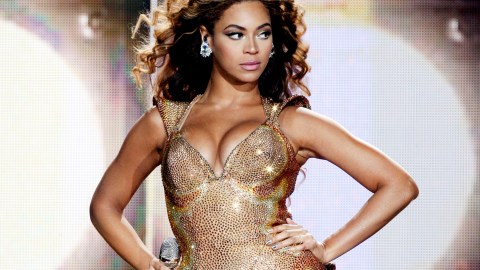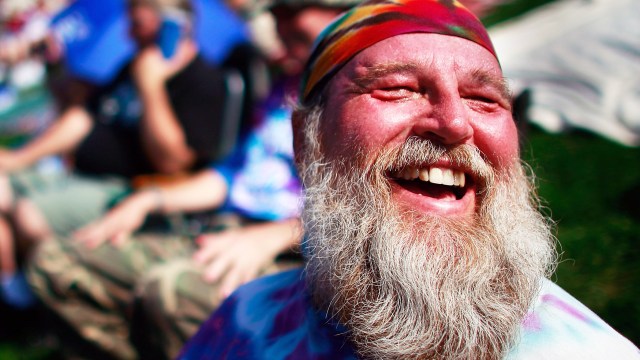6 Stages of Beyonce’s Lemonade

We all know about using life’s proverbial lemons to make lemonade. We’ve heard it before, but never the way it came to us on Saturday, April 23 – first in Beyonce’s Lemonade HBO premiere, then all over the Internet. In her visual album, Beyonce tells a personal story which she shares with many black women. Lemonade takes us on a journey from past to future with pit stops at the moments of intuition, rage, grief, reconciliation, and learning to love again.
Early on, the visual album hints at womanism with its Malcom X clip, images of black women as friends, dancers, mourners, and free beings. These women – Amandla Stenberg, Zendaya, Winnie Harlow, Serena Williams, and Quvenzhane Wallis – were carefully chosen, all having faced discrimination on the basis of race and railed against beauty standards in the media.
“The most disrespected person in America is the Black woman, the most unprotected person in America is the Black woman.”
-Malcolm X
The reemergence of Malcolm X is reminiscent of the ‘90s when hip-hop music was full of references to him and his ideology. At this time – often referred to as a new era of civil rights movements – protests and organized action remain nonviolent while growing in longevity, reach, and uncompromising commitment to speaking truth to power. This is a combination of Martin Luther King Jr.’s nonviolence and Malcolm X’s “any means necessary,” disrupting the status quo. Social issues always make their way into the music we produce and consume, and this is no different.
The strength of the visual album is really in the powerful words of Somali-British poet Warsan Shire juxtaposed with the lyrics of an intimate, deeply personal experience. They breathed life into the otherwise cryptic film, connecting the tracks strung together to form a narrative with the sometimes jarring visuals.
“I don’t know when love became elusive. What I know is, no one I know has it. My father’s arms around my mother’s neck, fruit too ripe to eat. I think of lovers as trees… growing to and from one another. Searching for the same light.”
Members of the Beyhive have long-awaited this album, having no idea when it would come. Even when her world tour was announced, there was much uncertainty. Whether you like Beyonce or not, her music, moves, and marketing put her on a fan-hoisted pedestal. She has built a world of mystery, and is determined to preserve her privacy, almost never giving interviews. Though counterintuitive, this has added to her appeal, making her a shell many can imagine themselves walking around in. A mogul, she is not relatable, but aspirational. People of all genders want to be like her. With Lemonade, finally, she allowed them to see through the cracks.
PROLOGUE: A WOMAN’S INTUITION
“Pray You Catch Me” is the prologue to the story. It sets the stage for what is to come. “Are you cheating on me?” answers the question everyone has about the album, and raises others. The mood swiftly changes to anger with “Hold Up” which is, oddly, a feel good tune juxtaposed with images of Beyonce using a bat to express her rage through destruction, all with a smile. She has clearly answered her own question: “What’s worse? Looking jealous or crazy… or being walked all over lately?” Her demeanor in the video hints at the next phase of her journey.
CONFIDENCE
“Don’t Hurt Yourself” brings the combination of confidence and rage with an unexpected rock ‘n’ roll edge. While it’s lyrics deliver, the portrayal of emotion seems contrived, and one must wonder whether or not she is trying to convince herself of her own strength. Is the repetition for emphasis to him, or reassurance for her?
“Beautiful man I know you’re lying
I am not broken, I’m not crying, I’m not crying
You ain’t trying hard enough
You ain’t loving hard enough
You don’t love me deep enough”
Defiant and unrelenting in its message, this song echoes Prince’s words in an interview. “A person tryna play me plays themselves,” he laughed. The way Beyonce speaks to this man is reminiscent of Malcolm X’s expression of rage and insistence that white people were not doing enough to end racism, and it was up to black people to make the change. She diagnoses the problem and takes the solution into her own hands. She makes it clear that she has everything she needs and doesn’t need to stay in a relationship with someone who isn’t putting in 100%. Still, she seems open to opportunities to reconcile, but on more equitable terms.
ACCEPTANCE
“Sorry” brings us to party mode, post-breakup. Laced with middle fingers up and no apologies, the woman in this story is no longer making attempts to fix things. She is happy the relationship is over, and enjoying the company of her friends. In this video, Serena Williams makes a cameo, dancing by herself with Beyonce in the frame. Is it possible that Serena is the carefree woman Beyonce wants to be, or feels she truly is, in the moment when she is determined not to think of her past lover? This scene foreshadows the freedom she sings of later in the album.
INTERGENERATIONAL
“Daddy Lessons” is an emotional part of the journey, bringing the realization that there is something about relationships between men and women, something about infidelity, and something about the way men feel about their daughters that doesn’t translate to their wives or other lovers. The song is appropriately country, given Beyonce’s background and the nature of the lyrics. She remembers the warnings of her father, and wonders about her fate and how she is tied to the experiences of her mother, and to the actions of the line of men who came before her. Are we doomed to relive and repeat the mistakes of our parents, or can we learn from them to work toward a better future for ourselves?
REGRET
Lemonade shifts gears with “Sandcastles” – a ballad raw with emotion where we hear Beyonce’s voice crack as she sits on the floor, playing the piano. Unexpected, it is her apology for walking away. She acknowledges the pain that comes when someone leaves you, even when you did them wrong. Finally, we get a sense of where things are going. Reconciliation is coming, as impossible as forgiveness first seemed. While many see this as a sign of weakness, it’s existence in this storyline and the role it plays in changing the outcome is powerful. Characteristics generally associated with black strength do not include forgiveness, and women are not expected to willingly return to relationships broken by infidelity, let alone identify themselves as the cause of shattered pieces. This is one of the biggest risks Lemonade took, with the possibility of diminishing the strength of and respect for black women.
PERMANENCE
All of the questions raised throughout the visual album were answered with “All Night” – a love song. She seems to come to the realization that nothing is perfect and, like her grandmother told her, “nothing real can be threatened.”
“They say true love’s the greatest weapon
To win the war caused by pain, pain
But every diamond has imperfections”
The personal nature of Lemonade was shocking, relatable, and empowering to black women. It is a departure from everything we have some to associate with Beyonce. It unifies people through shared experience and the autonomy and self-realization required to make personal unpopular choices. This isn’t unlike the teachings of Malcolm X which went against the grain of most activists in that time, but appealed – and continues to appeal – to those longing for the time and space to live their own truths, worrying less about perception and concerning themselves more with the vision for a better life. Lemonade may be the permission slip many black women have needed for decades. This kind of authenticity, dedication to self and the honoring of unadulterated, unfiltered stories has long been a privilege given to few, and Beyonce created the opportunity for herself. She may have made it possible for others to eschew silence and shed shame in favor of owning their narratives and recognizing the observations of Malcolm X on black womanhood, is what he may have said about Lemonade a mystery, or a given?
—





